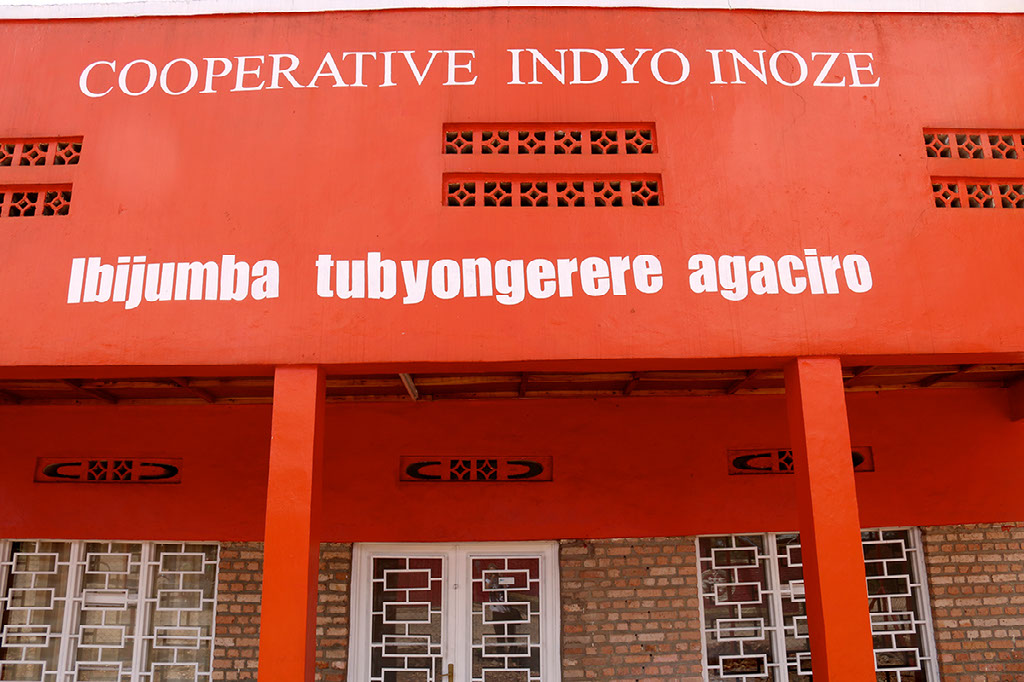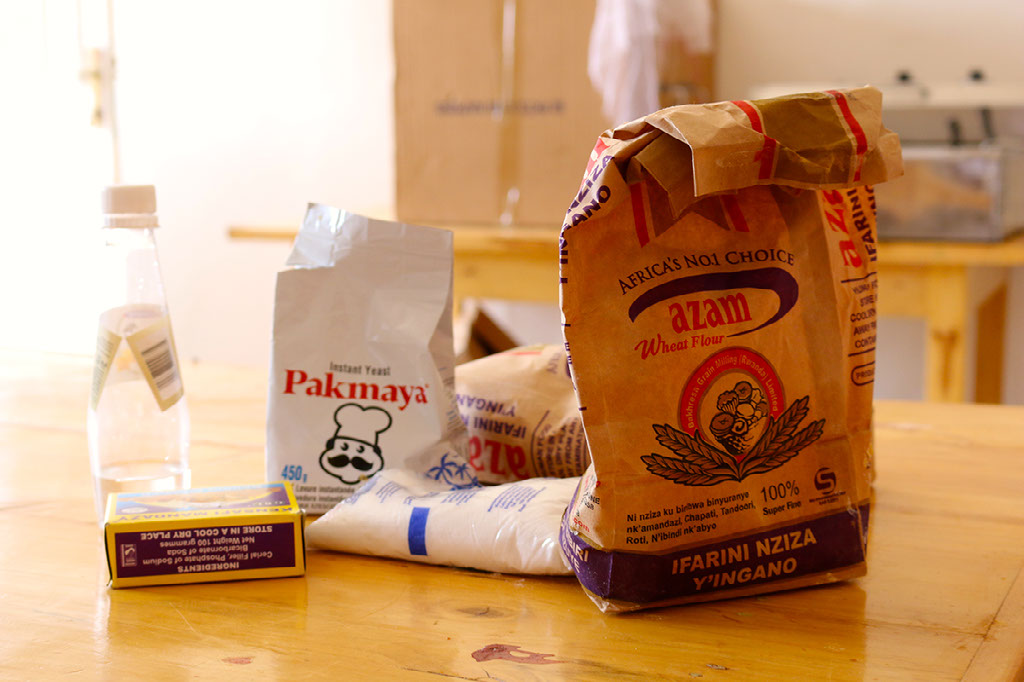Indyo Inoze re-inventing traditional foods with orange-fleshed sweetpotato in Rwanda
We arrive at the kitchen door just as the queencakes are being taken out of the oven. As the door opens we are welcomed by the delicious smell of baked goods. A still warm cupcake is thrust into our hands and as we walk through the small kitchen and our eyes widen at the dizzying array of colourful baked goods on display.
The staff at Indyo Inoze stay busy. Removing trays laden with queencakes from the oven, turning on the industrial mixer to ensure the right texture for smooth mandazi (Rwanda's delicious version of the classic donut) and dusting items with icing sugar to get them ready for delivery to another happy customer.
In Rwanda the orange fleshed sweetpotato is taking off in popularity and outlets like Indyo Inoze are helping to drive this demand. Demonstrating to customers and the private sector alike they show how orange fleshed sweetpotato can be utilised as a key ingredient in many of Rwanda's favourite recipes. From mandazi and queencakes to bread, chappati and porridge orange fleshed sweetpotato is more than proving itself worthy in taste and nutrition for Rwanda consumers.

The International Potato Center (CIP) has been working in Rwanda to promote orange fleshed sweetpotato for a number of years and in 2013, CIP designed the Scaling up Sweetpotato through Agriculture and Nutrition (SUSTAIN) Rwanda project together with the Rwanda Agriculture Board (RAB) with the specific aim of disseminating orange-fleshed sweetpotato (OFSP) technologies to smallholder farmers and to then link these farmers to markets for fresh roots and commercial processors.
CIP’s previous work in the country demonstrated that through effective public-private partnerships, viable sweetpotato value chains can be established. This new project focuses on scaling out these efforts and the Indyo Inoze Cooperative, in Rwanda’s Muhanga District, is a key partner.
Indyo Inoze specializes in processing OFSP to create an array of food products. It is an innovative cooperative that is inventing new ways to bring OFSP onto the commercial market in Rwanda. The cooperative works via a partnership between the Young Women’s Christian Association (YWCA) and CIP.
Christina Nyirahabimana the YWCA agronomist supported by CIP, provides agricultural advice and technical support to the YWCA staff and assists them in supporting the local community to access, produce, and harvest OFSP, and to find innovative ways of linking them to local markets.
Indyo Inoze members started cultivating OFSP in 2012 under the CIP-led SASHA (Sweetpotato Action for Security and Health in Africa) project. SUSTAIN Rwanda is now building upon the cooperative’s strong links to local farmers and markets in order to establish a more reliable and profitable market for OFSP.
The cooperative works with small farmer groups who have received OFSP planting material from RAB. Once they begin producing, these farmers sell OFSP vines and roots to smaller cooperatives in the area and at the local market, where there is a growing demand for both.
The cooperative developed new, creative recipes using OFSP, including OFSP bread, mandazi, queencakes and a range of other baked goods. While the cooperative works on a small scale, its members are constantly trying to find new markets and develop new and innovative products for their customers.
Christina explains that the local community has been very supportive and really like the cooperative’s OFSP baked goods. “The community loves our OFSP products because they taste great and smell really good. They also like them because they want the benefit of the vitamin A, which is in OFSP,” She said.
As a key cooperative staff member, Christina is a master at preparing delicious OFSP recipes including OFSP ‘mandazi‘. We spent the afternoon with Christina as she showed us to prepare this delicious snack.

OFSP Mandazi Recipe: Ingredients: ½ cup of boiled orange fleshed sweetpotato that has been mashed/pureed: 2 cups of wheat flour; 2 tablespoons of sugar; a pinch of salt; 2 cups of cooking oil; 1 tablespoon of baking powder and lukewarm water to taste.
Clean, peel and then boil the sweetpotato roots till they become soft. Once they are soft, mash or puree the roots. Mix the dry ingredients together and sift in with OFSP puree. Add water and mix into the dough. Add enough water so the mix holds together well and can be kneaded. Knead the dough well while adding 2 tablespoons of oil slowly. On a floured surface, roll the dough to about 1cm thickness. Once the dough is rolled out, cut the dough into desired shapes. The mandazi dough is ready for cooking! Fry the mandazi in hot vegetable oil. Turn the mandazi while cooking till they are golden brown. Remove from oil and, drain. Serve the mandazi warm or cold. ENJOY!
Scaling up Sweetpotato through Agriculture and Nutrition (SUSTAIN) is a five-year partnership (2013-2018) coordinated by the International Potato Center (CIP) and financed by the UK Department for International Development to spread the nutrition benefits of biofortified OFSP to more farmers. The program aims to reach 1.2 million households with children under 5 years across four countries: Kenya, Malawi, Mozambique and Rwanda through mutually-reinforcing incentives to increase adoption of OFSP, consumption of Vitamin-A-rich foods, and diversification of OFSP utilization. While OFSP is high in pro vitamin A, CIP promotes a food basket approach to ensure that people get Vitamin A from multiple sources including animal sources (meat, eggs, liver, fish) and other plant sources when they are available and affordable.
A photo story by Sara Quinn, Regional Communications Specialist, International Potato Center